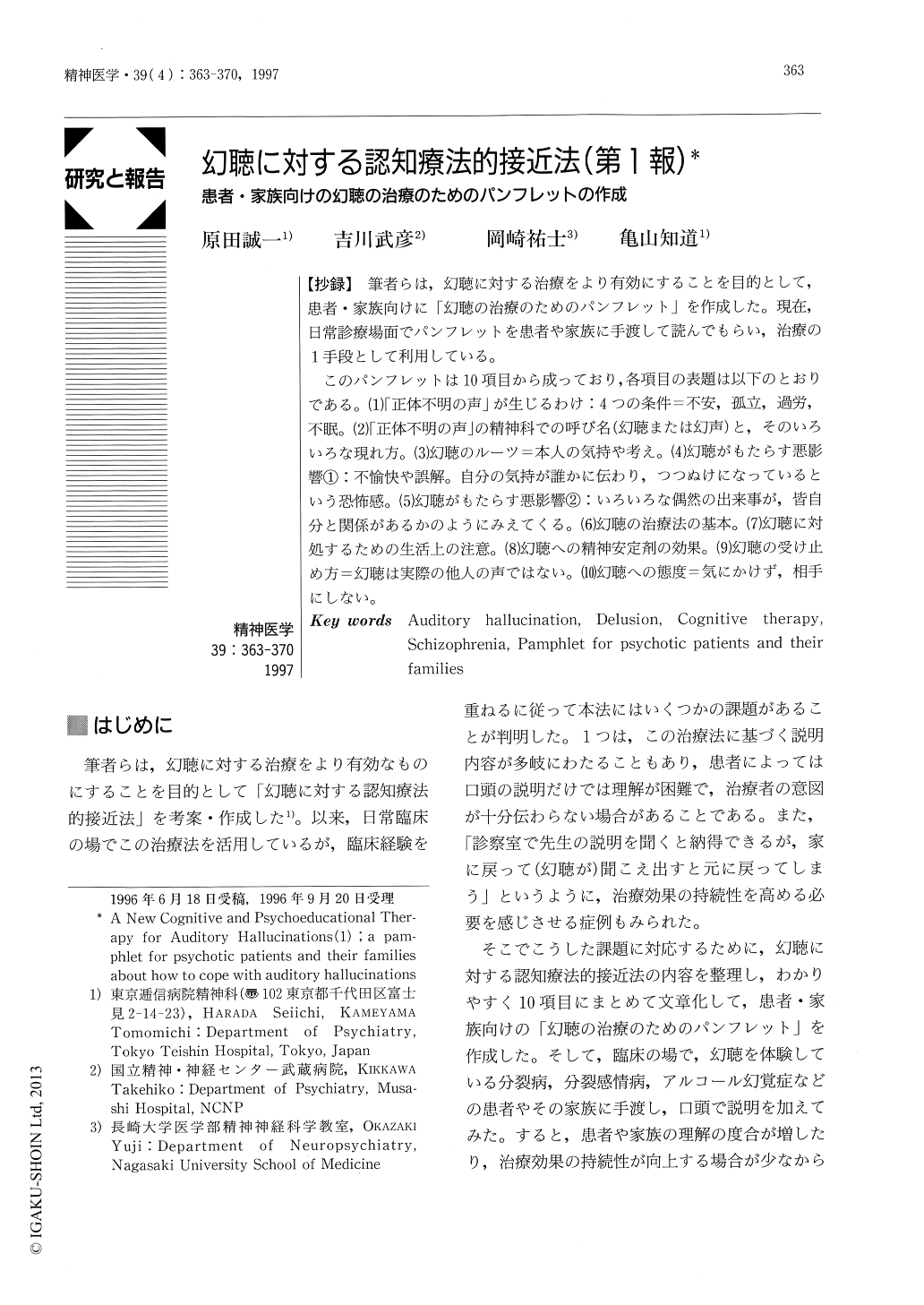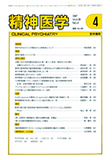Japanese
English
- 有料閲覧
- Abstract 文献概要
- 1ページ目 Look Inside
- サイト内被引用 Cited by
【抄録】筆者らは,幻聴に対する治療をより有効にすることを目的として,患者・家族向けに「幻聴の治療のためのパンフレット」を作成した。現在,日常診療場面でパンフレットを患者や家族に手渡して読んでもらい,治療の1手段として利用している。
このパンフレットは10項目から成っており,各項目の表題は以下のとおりである。(1)「正体不明の声」が生じるわけ:4つの条件=不安,孤立,過労,不眠。(2)「正体不明の声」の精神科での呼び名(幻聴または幻声)と,そのいろいろな現れ方。(3)幻聴のルーツ=本人の気持や考え。(4)幻聴がもたらす悪影響①:不愉快や誤解。自分の気持が誰かに伝わり,つつぬけになっているという恐怖感。(5)幻聴がもたらす悪影響②:いろいろな偶然の出来事が,皆自分と関係があるかのようにみえてくる。(6)幻聴の治療法の基本。(7)幻聴に対処するための生活上の注意。(8)幻聴への精神安定剤の効果。(9)幻聴の受け止め方=幻聴は実際の他人の声ではない。(10)幻聴への態度=気にかけず,相手にしない。
The purpose of the present study is to describe a new cognitive therapeutic approach to auditory hallucinations. For the sake of our new therapeutic approach, we prepared a pamphlet for patients and their families under the title“A PAMPHLET TO COPE WITH VOICES OF UNKNOWN ORI-GIN”.
The pamphlet consists of 10 items, which if implemented, will allow patients and their families to discover useful information on how to cope with auditory hallucinations.
The titles of the 10 items are as follows; (1) the reason why'voices of unknown origin'appear (the four factors that have combined to produce and aggravate the voices of unknown origin-anxiety, isolation, exhaustion and insomnia); (2) the psychiatric term of'voices of unknown origin'(auditory hallucination) and its various types; (3) the sources of auditory hallucinations (the person's own thoughts); (4) the negative influences the hallucinations have on people ① (Hallucinations make the person feel unpleasant and produce misunderstandings. They also arouse an ever-present fear that the person transmits directly to others.); (5) the negative influences the hallucinations have on people ②(Commonplace chance happenings seem to be vitally concerned with them.); (6) the fundamental methods for treating hallucinations; (7) essential precautions in daily living to diminish hallucinations; (8) the effectiveness of tranquilizers to treat hallucinations; (9) a useful understanding of hallucinations in order to cope with them (They are not real voices.); (10) a desirable attitude toward hallucinations which will diminish their influence (do not take them seriously and ignore them). We describe the entire contents of the pamphlet in this paper.

Copyright © 1997, Igaku-Shoin Ltd. All rights reserved.


